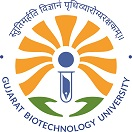
Dr. Kavita Yadav
– Assistant Professor
– Industrial Biotechnology
About
I have deep interest and extensive experience in synthetic biology, metabolic engineering and bioprocess engineering. In my recent postdoctoral research at Synthetic Biology Research Centre Nottingham (UK) I have worked on development of bio-manufacturing platforms for production of high value compounds using CO2 eating bacteria. I have used synthetic biology tools for construction of metabolic pathways, protein engineering for pathway optimisation and bioprocess engineering for scale-up and process optimisation using bioreactor.
During my postdoctoral research at Uppsala University (Sweden) I worked on European Union’s drug discovery project involving academic and industrial partners all across the Europe. In the drug discovery project, we screened potent antimicrobial compounds using a panel of strains (ESKAPE). I have developed various genetic tools using a library of synthetic and inducible promoters to achieve tuneable expression in E. coli. I use these genetic tools to study the horizontal transfer of tetracycline ribosomal protection proteins using lambda red recombineering system.
In my doctoral research work at The M S University of Baroda, I worked on genetic engineering of various soil microbes for production of organic acids (citric and oxalic acid) to develop phosphate solubilizing biofertilisers.
Background
Education:
- Ph.D. in Biochemistry (2013) from The Maharaja Sayajirao University of Baroda, Gujarat.
- M.Sc. in Microbiology (2007) from University of Rajasthan, Rajasthan.
- B.Sc. in Biological Sciences (2005) from Maharshi Dayanand University Rohtak, Haryana.
Honours and Awards
- Best Early Career Researcher presentation award (High Value Biorenewables), 2020 (UK).
- Commonwealth Rutherford Fellowship, 2018-2020 (UK) (Denied).
- FEMS 7th Congress of European Microbiologists Travel Grant, 2017 (Sweden).
- Swedish Society for Microbiology Travel grant, 2017 (Sweden).
- Indian Institute of Science Education and Research postdoctoral fellowship, 2013-2015 (India).
Research Group Overview
Main interest of my research group is in Synthetic Biology for development of genetic tools, design and construction of metabolic pathways and Metabolic engineering to optimise the metabolic pathways and enzyme engineering in bacterial hosts for development of bio-based platforms to achieve sustainable, cost effective and environment friendly production of industrially valuable compounds. I am using Systems biology approaches including transcriptomics, proteomics and metabolomics to study the bacterial expression, protein synthesis and metabolite secretion for pathway engineering. In addition to that I am also working on development of cell free protein systems for production of therapeutic proteins.
Publications
- Yadav K, Garoff L, Huseby D, Hughes D (2021) Phenotypic and genetic barriers to establishment of horizontally transferred genes encoding ribosomal protection proteins. J Antimicrob Chemother. doi:10.1093/jac/dkab056.
- Loza E, Sarciaux M, Ikaunieks M, Katkevics M, Kukosha T, Trufilkina N, Victoria R, Shubin K, Pantel L, Serri M, Huseby DL, Cao S, Yadav K, Hjort K, Hughes D, Gualtieri M, Suna E, Racine E. (2020) Structure-Activity relationship studies on the inhibition of the bacterial translation of novel odilorhabdins analogues. Bioorganic and Medicinal Chem. DOI: 10.1016/j.bmc.2020.115469.
- Garoff L, Yadav K, Hughes D (2017) Increased expression of Qnr is sufficient to confer clinical resistance to ciprofloxacin in Escherichia coli. J Antimicrob Chemother. 73(2):348–352. https://www.ncbi.nlm.nih.gov/pubmed/29106520. PMID: 29106520.
- Yadav K, Kumar C, Archana G, Naresh Kumar G. (2014) Artificial citrate operon and Vitreoscilla hemoglobin gene enhanced mineral phosphate solubilizing ability of Enterobacter hormaechei DHRSS. Appl Microbiol Biotechnol. 98(19): 8327-36. https://www.ncbi.nlm.nih.gov/pubmed/25016342. PMID: 25016342.
- Yadav K, Kumar C, Archana G, Naresh Kumar G. (2014) Genetic modification of Pseudomonas fluorescens ATCC 13525 for mineral phosphate solubilization by incorporation of an artificial oxalate operon and Vitreoscilla hemoglobin to secrete oxalic acid. PLoS ONE. 9(4): e92400. http://journals.plos.org/plosone/article?id=10.1371/journal.pone.0092400.

